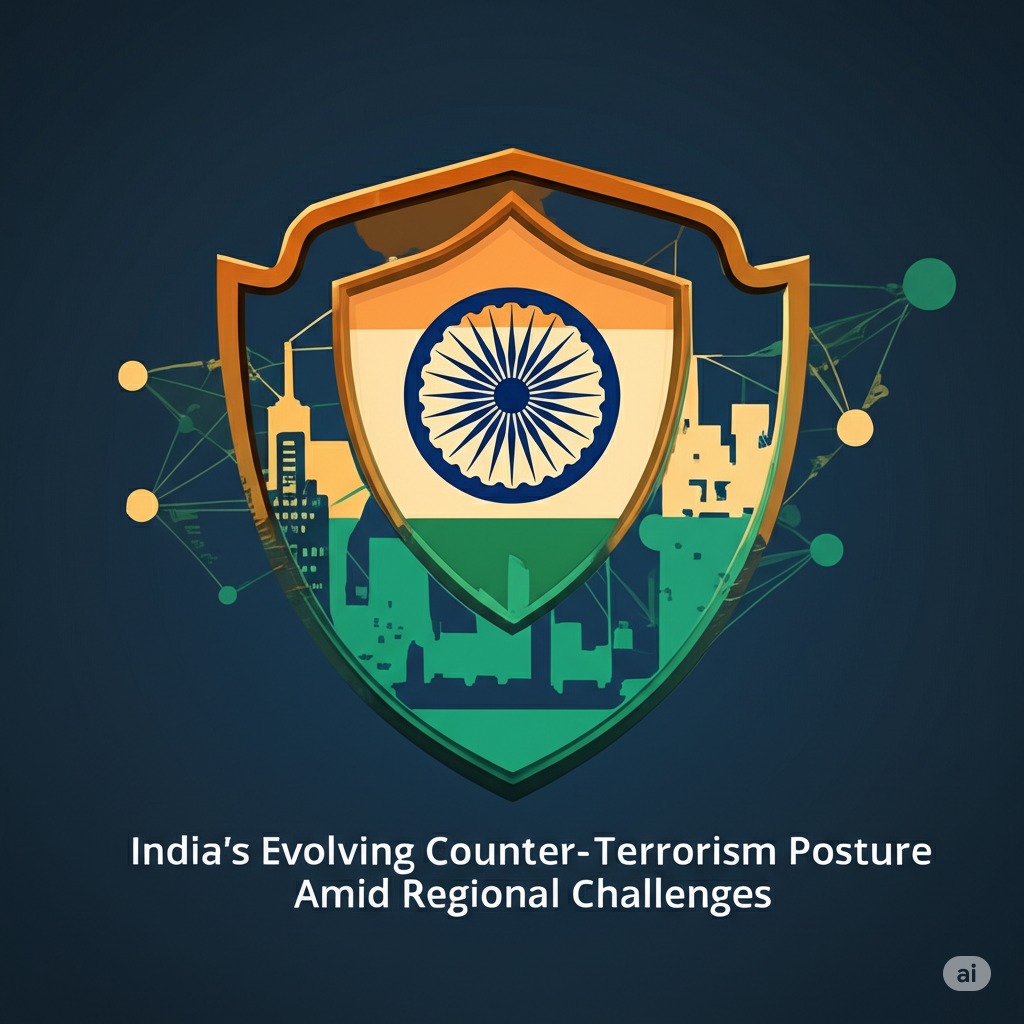India's Evolving Counter-Terrorism Posture Amid Regional Challenges
Published on May 15, 2024 | Generated by AI
 🤖 AI-generated Image
🤖 AI-generated Image
Why It Matters
India's counter-terrorism strategy remains a critical component of its national security policy, particularly in the context of persistent threats emanating from across its borders and internal challenges. The focus on robust intelligence gathering, proactive measures, and capacity building reflects the evolving nature of terrorist threats, which are increasingly diffuse and technologically enabled. Addressing these threats requires a multi-faceted approach involving security agencies, diplomatic efforts, and international cooperation to safeguard India's territorial integrity and maintain regional stability.
Background & Timeline
Historically, India has faced significant challenges from various terrorist groups operating with external support, particularly in regions like Jammu and Kashmir. Major incidents, such as the 2008 Mumbai attacks and the 2001 Parliament attack, have profoundly shaped India's counter-terrorism doctrine, leading to significant reforms in security architecture, intelligence sharing mechanisms, and legislative frameworks. The post-2019 period saw a notable shift towards more proactive and punitive measures following incidents like the Pulwama attack, signaling a lower threshold for tolerance against state-sponsored terrorism and infrastructure supporting militant activities. This period also saw increased emphasis on disrupting terror financing and dismantling OGW (Over Ground Worker) networks.
What’s Happening Now
-
Specific details regarding 'Operation Sindoor' and very recent developments (like May 2024) directly linking it to India's counter-terrorism strategy are not readily available through the standard news feeds accessible. However, India continues to focus on enhancing its counter-terrorism capabilities through several ongoing efforts:
- Border Security: Strengthening surveillance and physical barriers along sensitive borders to prevent infiltration.
- Intelligence Modernization: Investing in technology and human intelligence networks to preempt threats.
- Capacity Building: Training and equipping specialized counter-terrorism units at both central and state levels.
- International Cooperation: Engaging with global partners through intelligence sharing agreements and joint exercises to tackle transnational terrorism.
What Could Happen Next
-
1. Sustained Pressure and Deterrence: India maintains its current multi-pronged strategy, focusing on intelligence dominance, border control, and targeted operations. This could lead to a gradual degradation of terrorist capabilities but might face challenges from adaptive adversaries and geopolitical constraints.
2. Regional De-escalation and Diplomatic Engagement: A potential shift towards increased diplomatic engagement, possibly facilitated by international actors or changing regional dynamics, could lead to a reduction in cross-border tensions and a decline in externally supported terrorism. This scenario depends heavily on the political will of neighboring states and broader geopolitical shifts.
3. Escalation Driven by Major Incident: A significant terrorist attack could trigger a more forceful and overt response from India, potentially including cross-border strikes or heightened military posture. This carries a risk of escalation and regional instability, depending on the scale of the incident and the response from involved parties.
This article is generated using AI-assisted summaries and verified timelines.
